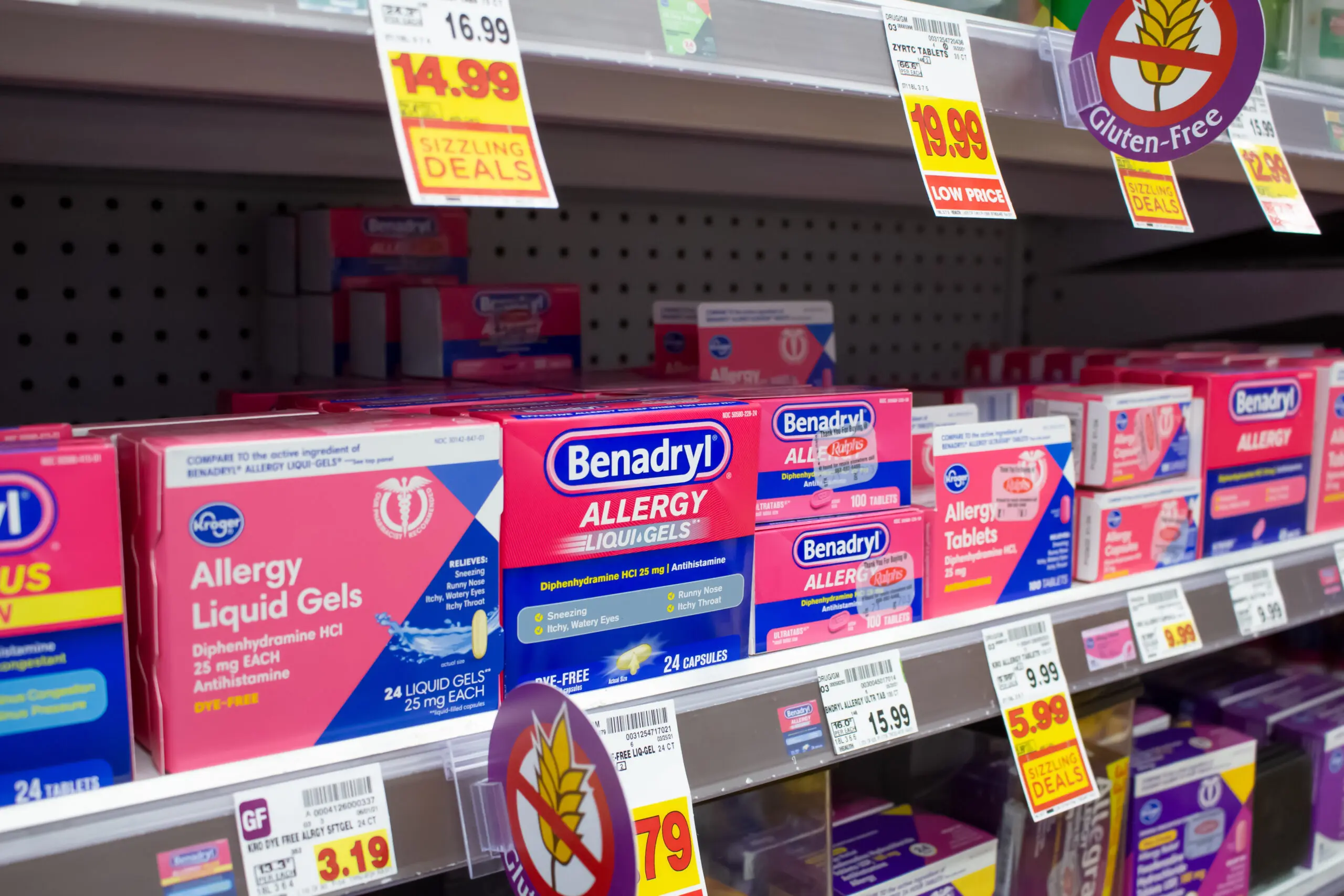
What Is Addyi? The Controversy Behind the Drug Nicknamed the ‘Female Viagra’

Marketed as a breakthrough for low libido in women, flibanserin’s approval followed two FDA rejections, a controversial campaign, and safety concerns

Share
on this page:
[Editor’s note: On December 15, 2025, the FDA extended its approval of Addyi to postmenopausal women under the age of 65. In making that decision, the agency revisited the original clinical trials conducted more than a decade ago, which included 947 postmenopausal participants with an average age of 55.4.
In a note that accompanied the press release, Sprout Pharmaceuticals said the age limit cited in the press release reflected the FDA’s acknowledgment that relatively few women over 65 were enrolled in the trials — not evidence that the drug fails to work in older women.
According to the FDA’s clinical trial snapshot, 0% of the women in these trials were over age 65.]
The first time Annie (who asked that we withhold her last name to protect her privacy) noticed a decline in her sex drive, she was just 28. By the time she was 30, the Denver-based financial advisor was desperate to regain her libido. “I was feeling like I’d explored everything — weight loss, exercise, supplements,” she remembers. Annie says the mismatch in desire between her and her partner left her grappling with “extreme guilt,” which took a toll on her mental health.
Lauren, 39, from Charlotte, North Carolina, experienced a similar shift in her libido at 34, which also took a toll on both her mental well-being and her relationship. “Having a lower intimacy in the bedroom is stressful,” she says.
As they searched for answers, both women came across Addyi (flibanserin), a medication approved by the FDA for premenopausal women experiencing hypoactive sexual desire disorder (HSDD), which is characterized by a low sex drive that causes distress. Lauren first asked her doctor about it in 2019 and took the medication for a few months before stopping. Annie discovered Addyi on YouTube in late 2023. When she brought it up with her doctor, she was prescribed the medication and was still taking it at the time of her interview for this article.
When the FDA approved Addyi in 2015 to treat low libido in women, advocates celebrated it as a milestone for women’s health. But the road to approval — marked by two prior rejections, worrisome side effects, and an aggressive advocacy campaign — raises deeper questions. Did marketing and public pressure play a more significant role than science?
Although prescriptions for Addyi fell short of initial expectations when it first hit the market, a direct-to-consumer marketing push is still underway, with ads now appearing on social media and podcasts. Before being swayed by glossy marketing campaigns, it’s worth taking a closer look at the drug’s complex history — and the controversy surrounding it since its debut.
What Is Addyi, and How Does It Work?
Female sexual interest/arousal disorder (FSIAD), the updated diagnostic term that encompasses what was previously known as HSDD, is a condition in which a woman’s interest in sex is persistently low, often causing distress or strain in relationships. Experts note that a wide range of internal and external factors can influence a woman’s sexual desire. Sonia Bahlani, M.D., an OB-GYN and pelvic pain specialist, points to stress, poor sleep, alcohol use, depression, body image, hormonal shifts, and relationship dynamics as key contributors.
Some conditions, such as certain thyroid disorders or autoimmune conditions, and medications, including antidepressants, have also been linked to reduced libido and other forms of sexual dysfunction.
Stay Informed. Sign up for our newsletters.
Independent, science-based journalism delivered directly to your inbox.
The molecular mechanisms underpinning low sexual desire are not fully understood in men or women, but researchers believe it involves an imbalance between serotonin, dopamine and norepinephrine — neurotransmitters that send chemical messages throughout the body. It’s thought that Addyi, a 5-HT-receptor agonist and antagonist that targets the serotonin pathway to help rebalance this system.
“It works on the serotonin pathway in the brain,” says Saketh Guntupalli, M.D., professor and director of the division of gynecologic oncology at the University of Colorado School of Medicine at Denver and a specialist in sexual dysfunction in women with cancer.
Addyi is not a one-size-fits-all solution. According to its label, it’s approved only for use in premenopausal women with low sexual desire due to HSDD that causes marked distress or interpersonal difficulty. It is not indicated for women who are postmenopausal or whose low desire stems from relationship problems, psychiatric issues, medical conditions, or the side effects of other medications.
Unlike most erectile dysfunction medications for men, such as Viagra, Addyi doesn’t work by improving blood flow to the genitals. Instead, it acts on the brain.
“I see a lot of men where Viagra and Cialis also don’t work, because the mind can overpower the medication,” says Michele Waldron, Psy. D, a sex therapist certified by the American Association of Sexuality Educators, Counselors and Therapists (AASECT) at Sexual Health and Healing LLC. “Creating blood flow to the genitals does not create desire.”
Rather than being taken “as-needed” (the way Viagra is prescribed for men), Addyi is meant to be taken daily at bedtime. If someone chooses to stop taking it, notes Dr. Guntupalli, the improvements to sex drive would likely wane.
“It takes six to eight weeks to really notice some positive effect,” after a woman starts taking Addyi, says Kaylie Caswell, MSN, a certified nurse practitioner and sexuality counselor. She adds that many women use it temporarily while they build new habits to improve their sex lives, while some continue using the medication long-term.
Addyi’s First Attempts at FDA Approval
Flibanserin, the active ingredient in Addyi, was initially studied in the 1990s as an antidepressant, but researchers later discovered its unexpected effect — increased libido in women. This surprise finding led Boehringer Ingelheim, whose U.S. headquarters are in Ridgefield, Connecticut, to shift focus and begin studying the drug as a treatment for low sexual desire in women.
In 2012, the results of two 24-week clinical trials — DAISY and VIOLET — were published. These trials included approximately 2,460 premenopausal women who tested the effects of daily flibanserin (Addyi) use. Participants who took the drug reported about one additional satisfying sexual experience per month compared with those who received a placebo. However, the treatment did not significantly improve daily self-reported levels of sexual desire, as recorded in participant journals throughout the study.
Despite these findings, Boehringer Ingelheim applied for FDA approval of Addyi to treat low sex drive in women in 2010, based on their then-unpublished clinical trial data. The FDA rejected the application, citing the lack of demonstrated improvement in sexual desire and concerns about side effects, including drowsiness, fainting, and potential interactions with other drugs such as antibiotics and blood pressure medications.
While members of an FDA advisory committee recommended against Addyi’s approval in 2010, they also suggested that Boehringer Ingelheim continue researching the drug and potentially apply again with more robust safety data. Along with other recommendations, the FDA specifically suggested that the company complete a study showing how the drug interacted with alcohol and antidepressants. The agency was concerned that combining the drug with alcohol could cause drowsiness and fainting. With antidepressants, it wondered if the combination could worsen symptoms of depression.
Despite this guidance, Boehringer Ingelheim chose to halt development of Addyi later that year, opting not to invest further resources, even though another trial was already underway. Late in 2011, the results of the ROSE study were published in late 2011, about a year after the company had abandoned the drug.
In the ROSE study, researchers enrolled 738 women to take Addyi daily for 24 weeks. Among those who responded positively to the medication, 333 women were selected to continue into a second phase: half remained on Addyi while the other half were switched to a placebo. Those who stayed on Addyi reported more days of sexual desire and, on average, two or more additional sexually satisfying events over a four-week period compared to the placebo group.
In 2012, Boehringer Ingelheim sold the drug’s rights to Raleigh, North Carolina-based Sprout Pharmaceuticals. (As of 2025, Addyi is Sprout’s only product, but the company’s owners previously founded and sold Slate Pharmaceuticals, an entity that marketed an implantable testosterone pellet for men called Testopel. In 2010, the FDA sent Slate a Warning Letter for misleading marketing that suggested the drug could help patients with other conditions, such as depression and HIV. Sprout received another Warning Letter in 2020 for failing to mention any of Addyi’s risks in a radio ad.)
After acquiring the drug, Sprout filed for FDA approval again, aiming to address the concerns raised during the initial 2010 review. Their resubmission featured new data, including the results of the ROSE study, as well as an alcohol interaction study. However, the alcohol study drew criticism: it involved just 25 participants — 23 of whom were men — despite the drug being intended for women. Among those who drank the equivalent of two glasses of wine with Addyi, four experienced low blood pressure or fainting. Of the 24 participants who consumed four glasses of wine with the drug, six experienced orthostatic hypotension, a sudden drop in blood pressure upon standing that can lead to dizziness and falls.
In 2013, the FDA determined that this additional information still did not demonstrate a significant enough benefit of flibanserin to outweigh its risks, including severe low blood pressure and drowsiness that could make driving unsafe.
After two failed applications, Sprout Pharmaceuticals decided it was time for a different approach: a marketing campaign.
“Even the Score”: How a Supposed Gender Bias Was Used to Rally for FDA Approval
Following Addyi’s second rejection in 2013, Sprout Pharmaceuticals swiftly backed Even The Score, a marketing campaign that framed the FDA’s decision as gender bias. The campaign argued that the rejections reflected a broader pattern of dismissing women’s sexual health and pleasure. The campaign created a parody ad on YouTube full of double entendres featuring a woman in a bright pink dress lying in a bed, pointing out that if men can’t get an erection, they can call their doctors for treatment, but women have no options to improve sexual function.
“I honestly think what’s going on here is the cultural context in which we live and the FDA operates is that women’s sexual pleasure is just not that important,” said Terry O’Neill, then-president of the National Organization for Women, an organization that supported the campaign, in a June 2015 interview with The New York Times.
Even the Score sparked a heated clash between Sprout and the FDA, which continued to argue that the drug lacked sufficient evidence of effectiveness to outweigh its risks. While Sprout rallied some women’s rights and women’s health advocates to support the drug’s approval, other advocates criticized the campaign for trivializing more serious issues in women’s health.
Sprout and its supporters argued that more than 25 medications were available to treat men’s sexual dysfunction, while none existed for women. But skeptics, including the FDA, called this claim misleading. They noted that those drugs for men addressed issues like erectile dysfunction — not low sexual desire, which Addyi aimed to treat.
While testosterone replacement therapy may increase sex drive in men with low testosterone, there is currently no drug on the market for men that works on brain chemistry to increase desire, like Addyi.
“There are absolutely not enough options for women that are FDA-approved,” notes Dr. Bahlani, who has prescribed Addyi to some of her patients. “That having been said … we can’t weaponize that [fact] to approve one thing.”
In response to a MedShadow request for comment, a spokesperson for Sprout Pharmaceuticals said: “Women deserve medical treatment options for medical conditions without the infantilization or judgment of any medical professional, regulatory body, or fellow human. And that was, is, and will always be our position.”
FDA staff defended their initial rejections of Addyi in an article in the New England Journal of Medicine on January 14, 2016, defending their decisions; they pointed out that while Addyi did seem to improve women’s reported satisfaction, levels of desire and distress regarding intimacy, the effects had been minimal. Between the three clinical trials (DAISY, VIOLET and BEGONIA), women who were given Addyi reported an average of 0.5-1 more satisfying sexual encounters per month, daily desire scores improved by 1.7-2.3 points on scale from 0-84, and levels of distress improved by 0.3-0.4 on a scale of 1-4.
Redefining Success, Finding FDA Approval
Bolstered by its marketing campaign, Sprout streamlined its trial data in its next attempt to get Addyi approved by the FDA.
Earlier clinical trials evaluated Addyi’s impact on a range of measures, including sexual function index, frequency of satisfying sexual events, levels of distress related to low libido, sexual desire scores, number of encounters, days with sexual desire, and self-reported changes in sexual function and behavior. The newer trials focused on just three outcomes: sexual function index, number of self-reported satisfying sexual events, and the degree of distress a woman reported feeling as a result of her limited libido.
In this third trial, dubbed BEGONIA, and published in 2013, about 500 premenopausal women who took Addyi reported one additional satisfying sexual experience per month, and an average improvement of 1 point on a sexual desire scale from 1 to 5. Heather Beall, M.D., an OB-GYN at Northwestern Medicine Huntley & Woodstock Hospitals, notes that one additional satisfying sexual experience means if “someone has sex four times a month, this might increase to five.” She adds, “One more encounter … doesn’t seem significant.”
Reflecting on that small increase, Dr. Bahlani notes, “That’s not a number I would be happy with in my own patient population.”
When asked about this relatively small increase for this article, Sprout’s representative stated that “the only person who decides how many more satisfying sexual events is ‘enough’ is the patient herself. If a woman goes from not having satisfying sex to having satisfying sex, whether that’s 1 or 3 or 6 more times a month, it’s up to her and only her if that is meaningful.”
In total, four Addyi clinical trials included just over 3,099 women. As is common in many clinical trials, the majority of participants (89%) were white, and there were not enough women of other ethnicities for the researchers to analyze data separately. That means that it was not possible to tell whether women of a particular ethnicity might respond better or worse to the drug than white women.
Finally Cleared for Use, But With a Boxed Warning
On August 18, 2015, based on the data from three clinical trials, the FDA approved Addyi — with stipulations.
Alongside the trial data, Sprout submitted criteria for a Risk Evaluation and Mitigation Strategy (REMS). The FDA decided that the drug’s label would have to contain a boxed warning, the most serious type of warning on a drug label, regarding the risk of low blood pressure and fainting in women who drink alcohol while taking the drug, who have liver problems, or who take medications such as antibacterials, blood pressure drugs, and some antidepressants, that block an enzyme called CYP3A4.
The FDA also requested that Sprout Pharmaceuticals conduct additional studies to better understand how Addyi interacts with alcohol.
The REMS program also restricted who could prescribe Addyi. Only healthcare providers who had undergone drug-specific training could prescribe the drug, and only pharmacies that had completed the same training could dispense it. Patients would be also required to sign an agreement that they’d abstain from alcohol while taking Addyi.
Is Addyi Safe?
Addyi is meant to be taken every day, indefinitely. Participants in the clinical trials that led to its approval took the drug for six months to a year.
While early trials excluded women who were taking antidepressants — because both depression and the medications used to treat it can cause sexual dysfunction — a 2018 study of 111 women suggested that the two most common types of antidepressants, selective serotonin reuptake inhibitors (SSRIs) and Serotonin Norepinephrine Reuptake Inhibitors (SNRIs) can be taken safely alongside Addyi.
In 2019, Sprout Pharmaceuticals submitted new data from two sets of postmarketing studies to the FDA regarding the drug’s interaction with alcohol. In one trial, which the FDA had required, there were no reports of fainting or low blood pressure severe enough to require intervention. However, the agency noted that many blood pressure measurements had been missed or delayed during the trial, especially among the women who had taken Addyi and alcohol together (as opposed to taking either alone). In separate postmarketing trials, researchers found that the risks of fainting or low blood pressure were lower when women had two drinks or less and had waited two hours after drinking to take the medication.
After this new data was submitted, the FDA allowed Sprout to change its black box warning. Patients no longer have to avoid alcohol entirely while taking the drug, although Addyi’s label currently recommends waiting two hours after drinking up to two drinks before taking Addyi and skipping the dose altogether if more than two drinks are consumed.
The REMS program requiring extra prescriber training and signed agreements from patients was also discontinued. Instead, Sprout must provide patients with a detailed medication guide.
Addyi can also have sedative properties, which, combined with other side effects, have raised safety issues for activities requiring focus, such as driving. This is why Addyi is recommended to be taken at bedtime.
Other reported side effects of flibanserin, with or without alcohol use, include:
- Dizziness
- Low blood pressure
- Fainting
- Severe drowsiness
- Difficulty falling or staying asleep
- Nausea
- Dry mouth
Still, some patients say the benefits of Addyi outweigh the risks. Annie, for example, says she noticed a meaningful improvement after taking Addyi for four to six weeks, and experienced no side effects.
“Now, I initiate [sex] because I want it, which feels empowering,” she says. “[My husband and I] are in a much better place emotionally.”
But responses to Addyi vary. On Reddit message boards, where women have shared their struggles with the drug over the last few years, reporting side effects such as extreme dizziness, nausea, nightmares, and insomnia.
Lauren’s experience falls into the latter category. Within the first month of taking Addyi, she noticed a shift in her mood. “I was like, ‘I’ve been so down lately,’” she recalls. Though her depression was typically well-managed with medication, Addyi seemed to make it worse. After a few months, Lauren’s depressive symptoms hadn’t improved. “I was like, ‘This isn’t going away. It’s not getting any better. This is worse than the condition it’s supposed to treat,’” she says.
Lauren stopped taking Addyi after a few months, and within a month or two, noticed her mood lifting. “It sucked that the condition I was treating… I wasn’t able to treat it,” she says. “But I think for the most part, I was just glad to be over it.”
Vyleesi, A New Addyi Competitor
In 2019, the FDA approved a new medication for increasing sexual desire in women with HSDD. Instead of being a daily pill, the drug, Vyleesi (bremelanotide), currently sold by Cosette Pharmaceuticals, is an injection to be used as needed, about 45 minutes before engaging in sexual activity, no more than eight times per month. Women in the clinical trials for Vyleesi did not report any more satisfying sexual encounters per month than women who used a placebo, but they did report improvements in sexual desire and distress related to low desire.
Unlike Addyi, Vyleesi can raise blood pressure and lower heart rate. It also caused nausea in 40% of trial participants. Lastly, 1% of women experienced darkening patches of skin and gums, a side effect that was more common in women with darker skin and did not go away for half of the women even after stopping the medication.
Natural Ways to Treat Low Libido
Medication is not the first-line treatment for low desire. “There are other things that can be done first,” says Caswell.
Caswell and Dr. Waldron describe the strategies they discuss with their patients to address low libido after they’ve ruled out any underlying medical causes — prior to trying medications like Addyi.
Education
First and foremost, both experts said they want to make sure their patients really understand what healthy arousal can look like. Some women will have a “friend who says that she’s having sex every single day with her husband. It’s just glorious. And so then it makes us think, ‘well, what’s wrong with me? Why am I broken?’ When, in fact, her friend is probably the unicorn in the room,” says Caswell.
Additionally, there’s an important distinction between spontaneous desire and responsive desire. “Much of the messaging we get is spontaneous desire,” says Dr. Waldron. “So letting [a woman] know that there’s another kind of desire called responsive desire,” can be important.
Dr. Waldron explains that spontaneous desire is sudden and quickly triggered, whereas responsive desire takes a little time. “It takes time to preheat. So you may not be focused or thinking about sex, but you may have a willingness to get in the mood.”
Caswell adds that “I have a lot of women that come in and they just expect that they should have spontaneous sexual desire and that they’re broken if they don’t and that’s just not true.”
Additionally, Caswell adds that it’s important to discuss a normal sexual response cycle, what to do in the case of dryness or erectile dysfunction, and how aging can influence that cycle.
Environment and Lifestyle
After educating oneself, it’s time to talk about lifestyle and the environment, according to Caswell and Dr. Waldron.
“Sometimes people just don’t feel that good in their body,” says Caswell. “Then we have to think about exercise or managing chronic disorders to make them feel better.”
Sometimes it’s not major relationship issues that affect desire, but rather the absence of small, everyday moments that help women feel connected and in the mood.
“Are they small touches? Are they small text messages [saying] ‘I’m thinking about you’?,” asks Caswell. Identifying the positive sexual stimuli that get those wheels turning can help women and their partners feel more connected.
Mental Health
Dr. Waldron explains that when it comes to desire, you don’t just have to know what gets you aroused, but what gets in the way. “You can’t simply press the accelerator,” she says. “You actually have to remove the breaks. So much of the therapy is figuring out what their brakes are and working to remove them so they can access that accelerator and desire.”
Brakes can be things like a racing mind, or an inability to focus on the moment because you see your kids’ toys around the room. Counseling can help couples address these sorts of distractions. Planning intimacy can help, notes Caswell, because you can prepare yourself and your environment.
Another treatment is sensate focus therapy, a type of therapy that Dr. Waldron describes as a “combination of mindfulness, systematic desensitization and exposure therapy.” Participants focus on non-sexual touch to stay in the moment and ease anxiety. It can help people become more comfortable with their bodies and with communicating about sex, she says.
- Landen, M., Eriksson, E., Agren, H., & Fahlen, T. (1999). Effect of buspirone on sexual dysfunction in depressed patients treated with selective serotonin reuptake inhibitors. Journal of Clinical Psychopharmacology, 19(3), 268–271.
- U.S. Food and Drug Administration. (2014). Current regulatory framework: Female sexual interest/arousal disorder (FSIAD). U.S. Department of Health & Human Services.
- Clayton, A. H., Dennerstein, L., Pyke, R., & Sand, M. (2010). Flibanserin: A potential treatment for hypoactive sexual desire disorder in premenopausal women. Women’s Health, 6(5), 639–653
- Joffe, H. V., Chang, C., Sewell, C., Easley, O., Nguyen, C., Dunn, S., Lehrfeld, K., Lee, L., Kim, M., Slagle, A. F., & Beitz, J. (2016). FDA approval of flibanserin—Treating hypoactive sexual desire disorder. New England Journal of Medicine, 374(1), 101–104.
- DeRogatis, L. R., Komer, L., Katz, M., Moreau, M., Kimura, T., Garcia, M. Jr., Wunderlich, G., & Pyke, R. (2015). Treatment of hypoactive sexual desire disorder in premenopausal women: Efficacy of flibanserin in the VIOLET study. Journal of Sexual Medicine, 12(10), 1800–1813.
- U.S. Food and Drug Administration. (2024, January 12). Drug trials snapshots: ADDYI. U.S. Department of Health & Human Services.
- Moore, R. A., Edwards, J. E., & McQuay, H. J. (2002). Sildenafil (Viagra) for male erectile dysfunction: A meta-analysis of clinical trial reports. BMC Urology, 2, 6.
- Thorp, J., Simon, J., Dattani, D., Taylor, L., Kimura, T., Garcia, M. Jr., Lesko, L., & Pyke, R. (2012). Treatment of hypoactive sexual desire disorder in premenopausal women: Efficacy of flibanserin in the DAISY study. Journal of Sexual Medicine, 9(1), 320–327
- Stemple, J. (2016, November 2). Valeant sued for botching marketing of female libido pill. Reuters
- Wang, M., & Gao, Z. (2025). Sexual dysfunction in women with Sjögren’s syndrome: A cross-sectional observational study. J Obset Gynaecol.
- Moghadam, Z., et al (2019). Prevalence of sexual dysfunction in women with systemic lupus erythematosus and its related factors. Rheumatologia
- Zeiss, R., et al (2024). Sexual Dysfunction Induced by Antidepressants—A Pharmacovigilance Study Using Data from VigiBaseTM. Pharmaceuticals (Basel).
- Pierrelus, C., Patel, P., & Carlson, K. (2023). Flibanserin. StatPearls.
- Nimbi, F. (2020). Male Sexual Desire: An Overview of Biological, Psychological, Sexual, Relational, and Cultural Factors Influencing Desire. Sexual Medicine Reviews.
- Smith, B., & Babos, M. (2023). Sildenafil. StatPearls.
- Kennedy, S. (2010). Flibanserin: Initial Evidence of Efficacy on Sexual Dysfunction, in Patients with Major Depressive Disorder. The Journal of Sexual Medicine.
- Armitage, H. (2015, August 24). How does the new ‘female Viagra’ work? Science.
- Wilson, D. (2010, June 18). Drug for Sexual Desire Disorder Opposed by Panel. New York Times.
- Liu, A. (2010, October 8). Following regulatory feedback Boehringer Ingelheim decides to discontinue flibanserin development. Fierce Biotech.
- Goldfischer, E., et al (2011). Continued Efficacy and Safety of Flibanserin in Premenopausal Women with Hypoactive Sexual Desire Disorder (HSDD): Results from a Randomized Withdrawal Trial. The Journal of Sexual Medicine.
- Dooley, E., Miller, M., & Clayton, A. (2017). Flibanserin: From Bench to Bedside. Sexual Medicine Reviews
- (2020, August 31). Sprout Pharmaceuticals, Inc. Food and Drug Administration. Retrieved June 4, 2025
- Harrison, R. (2016, January 13). A Drug for Women, Tested on Men. Yale School of Medicine. Retrieved June 4, 2025
- Tavernise, S., & Pollack, A. (2015, June 13). Aid to Women, or Bottom Line? Advocates Split on Libido Pill. New York Times.
- [Even the Score]. (2014, October 16). What the F**k?! – Hilarious Parody of Viagra Video [Video]. YouTube
- (n.d.). About Us. Even the Score. Retrieved August 22, 2015, from
- Sizar, O., Leslie, S., & Pico, J. (2023). Androgen Replacement. StatPearls.
- Katz, M., et al (2013). Efficacy of flibanserin in women with hypoactive sexual desire disorder: Results from the BEGONIA trial. J Sex Med.
- (2015, August 15). FDA approves first treatment for sexual desire disorder. Food and Drug Administration. Retrieved June 4, 2025,
- Zhou, S., et al (2005). Mechanism-based inhibition of cytochrome P450 3A4 by therapeutic drugs. Clinical Pharmacokinet.
- Clayton, A., et al (2018). Safety of Flibanserin in Women Treated With Antidepressants: A Randomized, Placebo-Controlled Study. The Journal of Sexual Medicine.
DISCLAIMER: MedShadow provides information and resources related to medications, their effects, and potential side effects. However, it is important to note that we are not a substitute for professional medical advice, diagnosis, or treatment. The content on our site is intended for educational and informational purposes only. Individuals dealing with medical conditions or symptoms should seek guidance from a licensed healthcare professional, such as a physician or pharmacist, who can provide personalized medical advice tailored to their specific circumstances.
While we strive to ensure the accuracy and reliability of the information presented on MedShadow, we cannot guarantee its completeness or suitability for any particular individual’s medical needs. Therefore, we strongly encourage users to consult with qualified healthcare professionals regarding any health-related concerns or decisions. By accessing and using MedShadow, you acknowledge and agree that the information provided on the site is not a substitute for professional medical advice and that you should always consult with a qualified healthcare provider for any medical concerns.
on this page:
RECOMMENDED:
DONATE:
Help fund our fight for improved medication safety and transparency by supporting our independent journalism.
Give NowStay Informed. Sign up for our newsletters.
Independent, science-based journalism delivered directly to your inbox.
About Our Advocacy:
We seek to create a world where there are safer medications for all and where all people are fully informed about their medication benefits and side effects, using our explanatory and investigative journalism to both inform and stimulate public discussion to drive toward solutions.
WEBINARS
Want to hear expert insights about medication safety and other care options? Watch all our past webinars and sign up for upcoming ones.
WATCH Now



